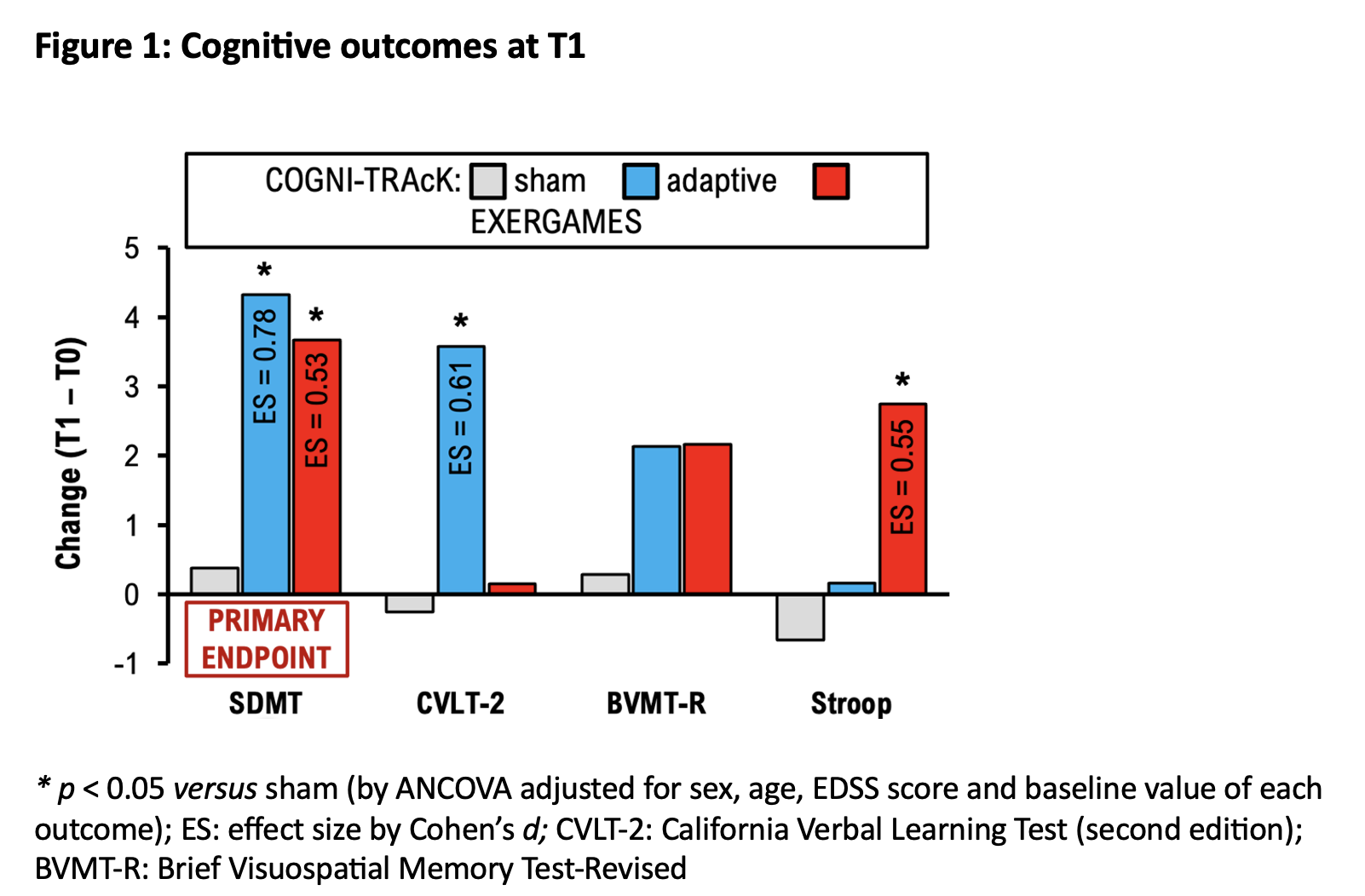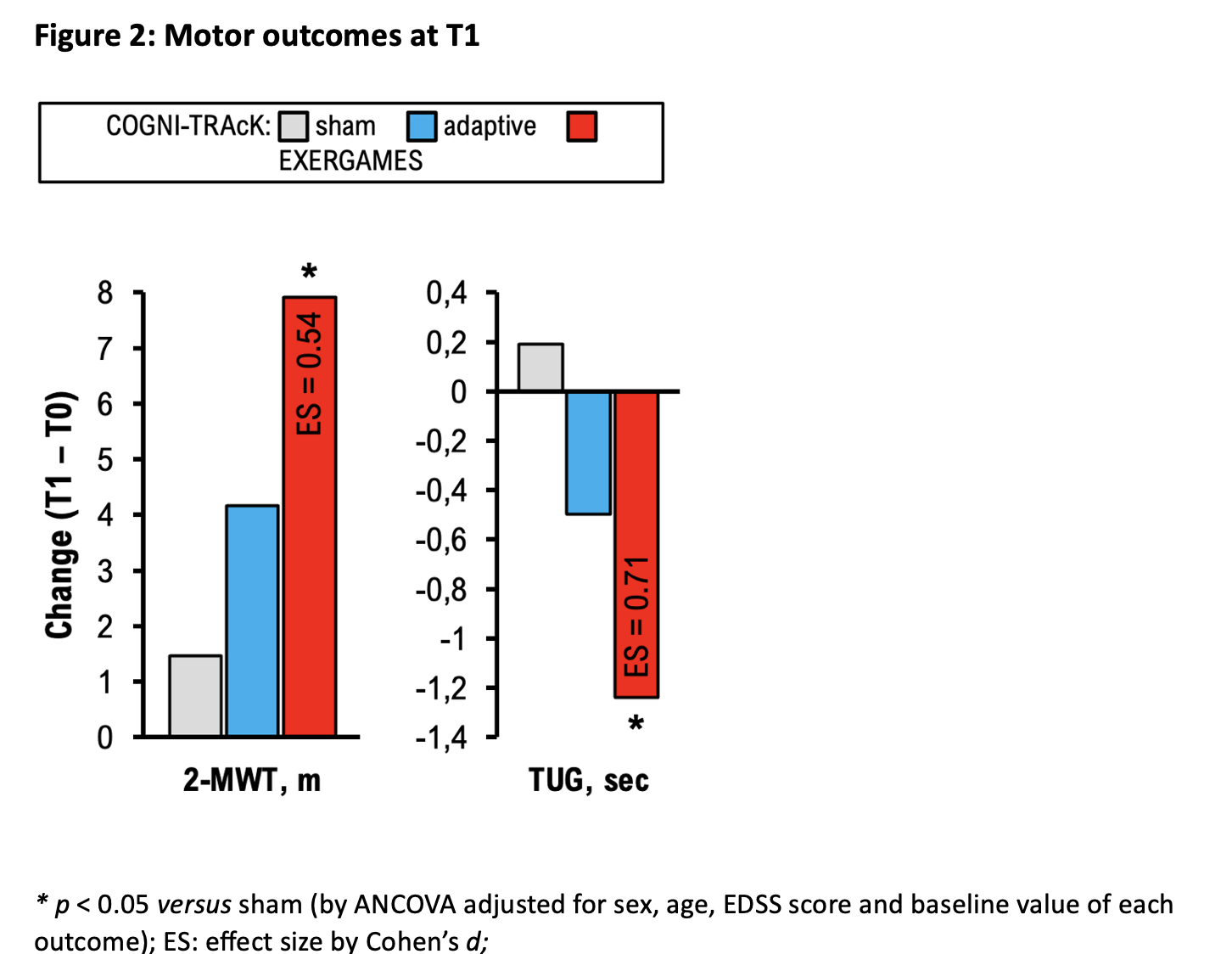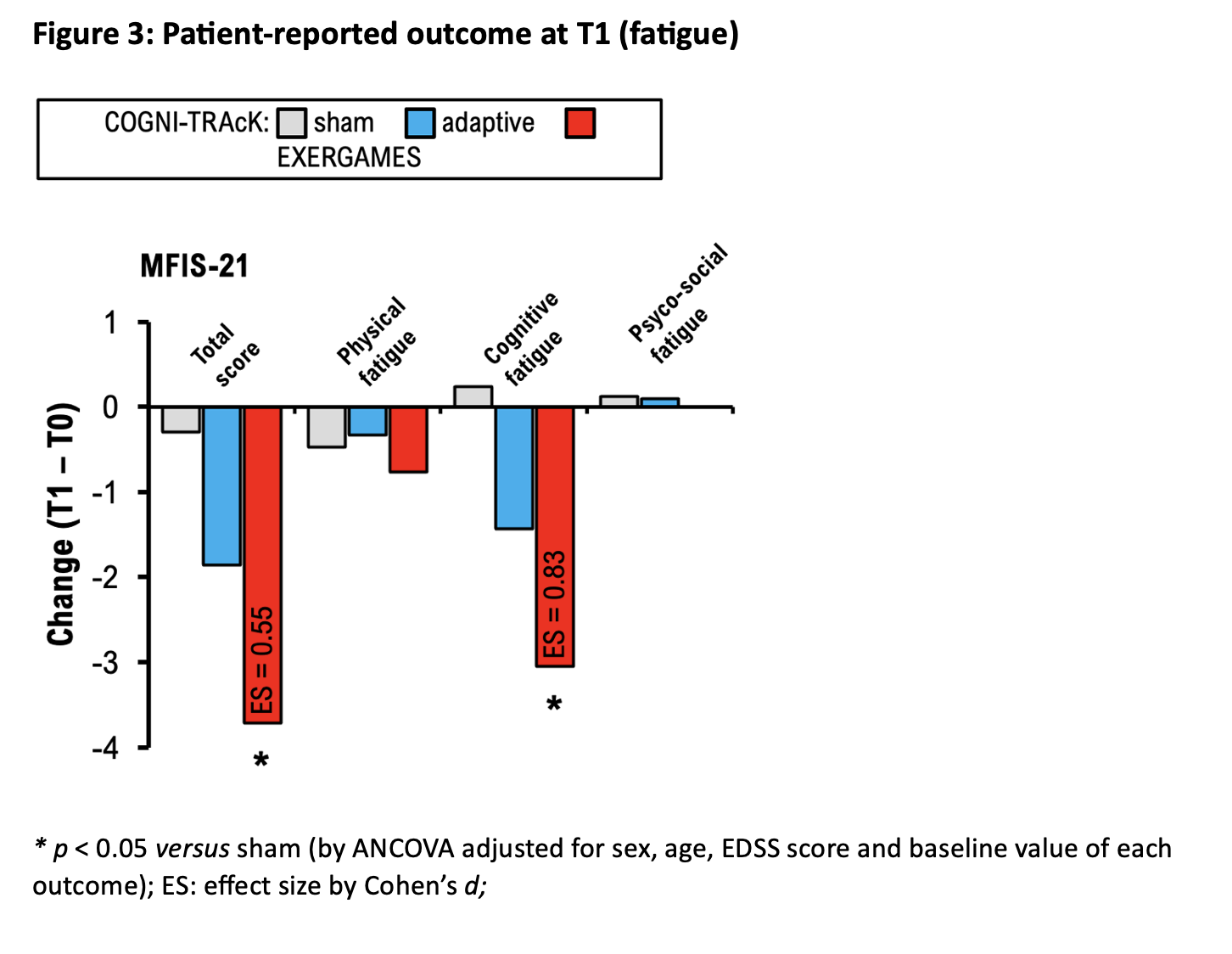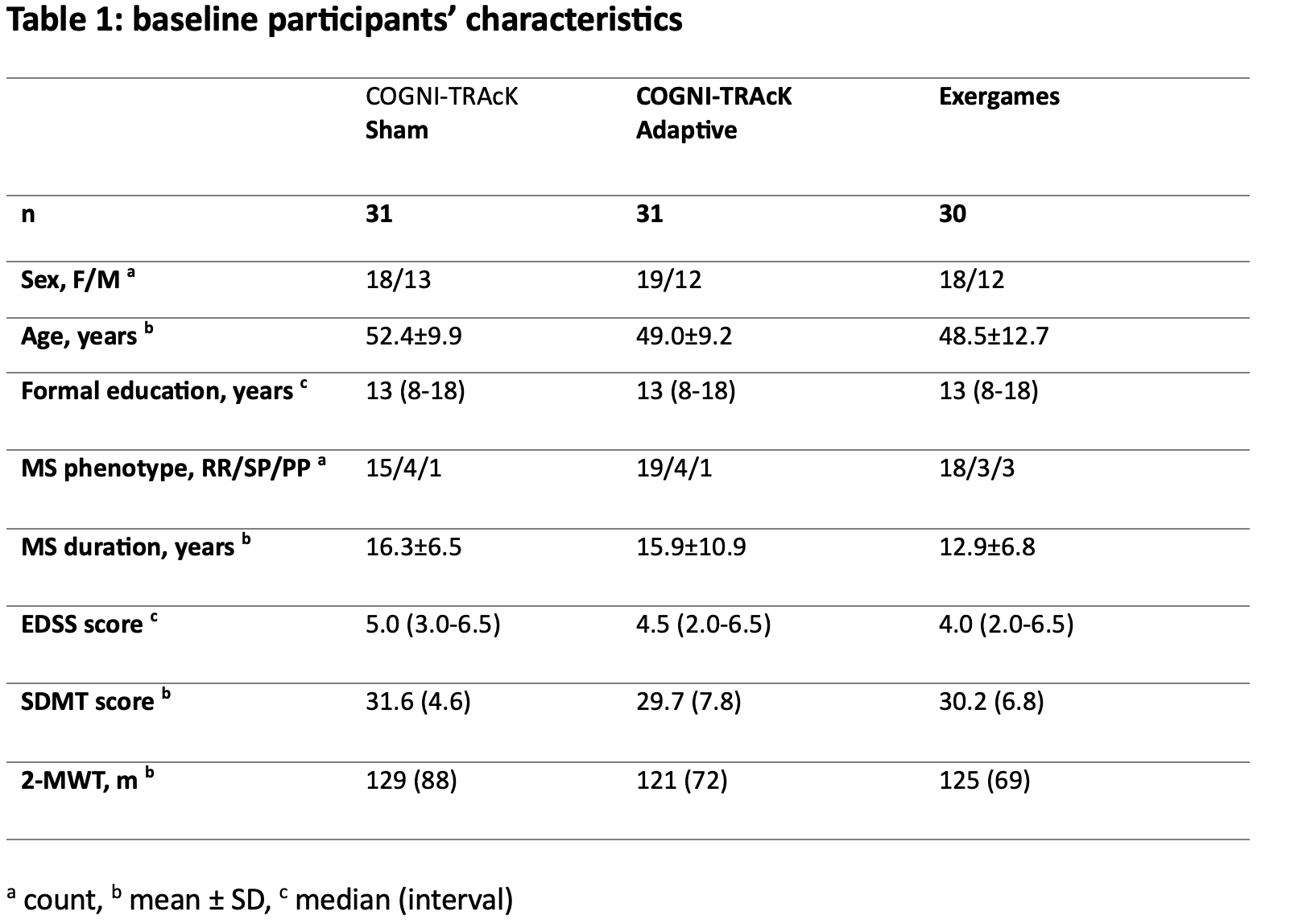EXERGAMES A DOMICILIO PER MIGLIORARE LA FUNZIONE COGNITIVA NELLA SCLEROSI MULTIPLA: UNO STUDIO MULTICENTRICO, RANDOMIZZATO, CONTROLLATO CON SHAM, IN SINGOLO CIECO, A BRACCI PARALLELI (EXTREMUS)
HOME-BASED EXERGAMES TO IMPROVE COGNITIVE FUNCTION IN MULTIPLE SCLEROSIS: A MULTICENTRE, RANDOMISED, SHAM-CONTROLLED, SINGLE-BLIND, PARALLEL ARM STUDY (EXTREMUS)
Introduction
People with Multiple Sclerosis (PwMS) often experience coexisting cognitive and motor dysfunctions that require both cognitive and motor rehabilitation. The set-up of a tailored approach encompassing two different forms of rehabilitation (for motor and cognitive problems) can be time-consuming and expensive. Therefore, the provision of a single rehabilitation strategy that can address both cognitive and motor issues remains highly desirable.Exergaming is an emerging tool in neurorehabilitation that incorporates goal-based training and gross motor exercise, thus having the potential for improving both cognitive and automatic components of motor control by exploiting adaptive plasticity. The aim of this study was to verify the hypothesis that exergames and working memory trainings were equally superior to a sham intervention on information processing speed and that exergames were superior to both working memory training and sham intervention on walking endurance and dynamic balance.
Methods
We selected 92 PwMS who had a cognitive impairment defined based on Symbol Digit Modalities Test (SDMT) score and with the ability to stand upright for at least 180 seconds.Subjects were randomized in a one-to-one-to-one ratio to sham intervention or working memory training or exergames. Both the sham intervention and the working memory training were delivered by COGNI-TRAcK that is a handheld application for tablets. Exergaming was delivered by the Wii Fit Plus package.All interventions were standardized in terms of setting(at home), intensity(30 minutes per session), frequency(5 sessions per week) and duration(8 weeks).Study assessments were done at baseline (T0) and soon after the end of intervention (T1).The SDMT was the primary endpoint. The secondary outcomes were Brief International Cognitive Assessment for MS (BICAMS), Stroop test, 2 Minute Walk Test (2MWT), Timed Up-and-Go test (TUG), 9-Hole Peg Test (9HPT) and patient-reported
Results
Regarding the primary outcome, both exergames and adaptive COGNI-TRAcK were superior to sham on SDMT after the eight-week intervention (T1).In particular, the Effect Size (ES) by Cohen’s d considering the change between the score at T1 and T0 (T1-T0) was 0.78 and 0.53 respectively in COGNI-TRAcK adaptive and exergames groups,with a p < 0.05 versus sham in both groups.Only the adaptive COGNI-TRAcK was superior to sham intervention on verbal learning and memory (ES= 0.71) and only exergames were superior to sham on executive functions explored with the Stroop test (ES=0.55) with p < 0.05 versus sham.Only the exergames group had significant improvement in both 2MWT (ES=0.54) and TUG (ES=0.71) as compared with the sham intervention(p < 0.05 versus sham).Regarding patient-reported outcomes, we found a beneficial effect only with exergames group that experienced less impact of MS.A significant reduction of the total Modified Fatigue Impact Scale score with an ES=0.55 was found.
Discussion and Conclusion
Exergames can be regarded as a “pay-one-get-two” deal, as they can improve both the motor and cognitive domains, especially attention and executive function. On the other hand, we confirm the beneficial effect of working-memory training on a wide range of cognitive aspects, but we found no effect on motor outcomes or patient-reported outcomes (thereby, there is no far transfer for working-memory training).Moreover, other data analyses are in progress to explore adherence to intervention, the long-term effect of intervention, the safety of exergames with special attention to accidental falls, and several predictors of outcomes including sleep quality, personality trait, cognitive reserve and motor reserve.
REFERENCES
-Stanmore E, Stubbs B, Vancampfort D, de Bruin ED, Firth J. The effect of active video games on cognitive functioning in clinical and non-clinical populations: A meta-analysis of randomized controlled trials. Neurosci Biobehav Rev. 2017 Jul;78:34-43. doi: 10.1016/j.neubiorev.2017.04.011. Epub 2017 Apr 23. PMID: 28442405.
-Prosperini L, Fortuna D, Giannì C, Leonardi L, Marchetti MR, Pozzilli C. Home-based balance training using the Wii balance board: a randomized, crossover pilot study in multiple sclerosis. Neurorehabil Neural Repair. 2013 Jul-Aug;27(6):516-25. doi: 10.1177/1545968313478484. Epub 2013 Mar 11. PMID: 23478168.




